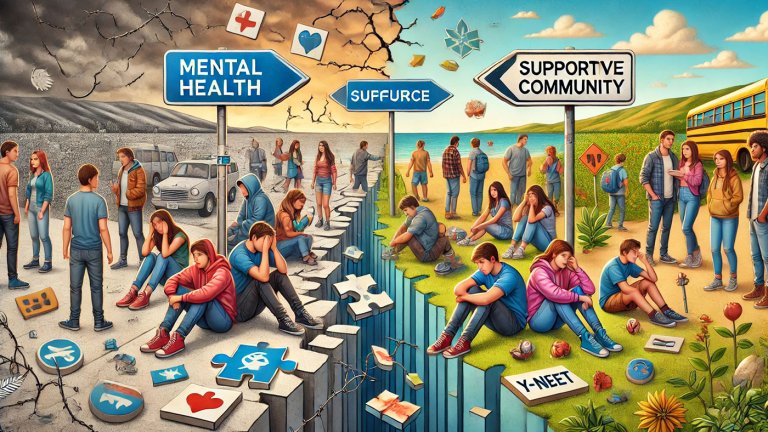Is Toxoplasma Gondii the Hidden Culprit Behind Mental Health Crises? Why Parasite Treatment Should Be a Top Priority in Psychiatry
For years, the mental health field has diligently sought answers to the root causes of depression, anxiety, schizophrenia, and—most tragically—suicidal behaviour. We often look for obvious culprits: trauma, substance abuse, environmental stress, or familial history of mental illness. But what if the real cause of these debilitating conditions is far more insidious, microscopic, and commonly overlooked?
For years, the mental health field has diligently sought answers to the root causes of depression, anxiety, schizophrenia, and—most tragically—suicidal behaviour. We often look for obvious culprits: trauma, substance abuse, environmental stress, or familial history of mental illness. But what if the real cause of these debilitating conditions is far more insidious, microscopic, and commonly overlooked?
Enter Toxoplasma gondii, a parasite carried by millions, silently shaping the mental health of unsuspecting victims worldwide. While this parasite is most commonly associated with cat faeces and undercooked meat, its effects go beyond physical health and plunge deep into the human psyche. T. gondii has the potential to rewire your brain, disrupt your neurotransmitters, and, most shockingly, lead to suicide.
Mental health professionals: it’s time to wake up and acknowledge that T. gondii infection may be the hidden reason some of your patients are spiralling into mental darkness for seemingly no reason at all.
The Silent Saboteur in Our Brains
Toxoplasma gondii is a master manipulator. In animals, it turns once-cautious rodents into fearless prey for predators, ensuring the parasite’s life cycle continues. But what happens when T. gondii infects the human brain? It doesn't just sit idly by. Studies show that T. gondii infection can increase the risk of developing psychiatric disorders, including depression, schizophrenia, and—most concerning—suicidal thoughts and behaviour.
A large-scale Danish study found that individuals infected with T. gondii were significantly more likely to attempt suicide, particularly women. What’s even more chilling is that T. gondii doesn’t discriminate. It can affect anyone, even those without any history of trauma, drug use, or environmental factors typically linked to mental illness.
Imagine being a mental health patient, desperately trying to understand why your life is falling apart despite having everything seemingly in order—good job, stable family, no history of abuse or trauma—yet still plagued by unshakable depression or suicidal ideation. Could it be that a microscopic invader is quietly hijacking your brain chemistry?
Mental Health Care is Missing the Mark—It’s Time to Include Parasite Treatment
This is where mental health professionals are missing the mark: we must consider the possibility that a parasitic infection could be driving these symptoms, and this must lead to a fundamental change in treatment approaches. While therapy has its benefits, the inclusion of anti-parasitic medications like ivermectin—safe, inexpensive, and widely available—should be at the forefront of innovative mental health care.
Why aren’t we exploring this more aggressively? Despite overwhelming evidence connecting T. gondii to neuropsychiatric disorders, treatment remains largely focused on the aftermath—psychotropic medications that numb symptoms but don’t address potential biological triggers like T. gondii. Imagine the transformation we could see if mental health care professionals added antiparasitic medications to their arsenal!
The Science is Clear—T. gondii is Affecting Mental Health
We already have the evidence:
- Rodent studies have proven that T. gondii can manipulate behaviour, driving rodents to engage in suicidal behaviours by being drawn to their predators. This mind-altering capacity cannot be ignored in humans.
- In humans, research has shown that infected individuals are more likely to suffer from mood disorders and attempt suicide.
- T. gondii cysts in the brain influence neurotransmitter production, particularly dopamine, a crucial regulator of mood and emotional stability.
These findings are not mere coincidences. The neuroinflammatory response and dopamine dysregulation caused by the parasite could be leading millions into states of depression, anxiety, and suicidal ideation. This is not speculative. This is science.
Ivermectin: The Overlooked Hero in Mental Health Care?
Let’s talk about ivermectin—an inexpensive, widely available antiparasitic medication. While its use gained controversial attention during the COVID-19 pandemic, ivermectin has long been recognized as a safe and effective treatment for various parasitic infections, including T. gondii.
Imagine this scenario: You’re a psychiatrist with a patient who presents with severe depression. There’s no history of trauma, no substance abuse, and no environmental explanation for the symptoms. What if a simple course of antiparasitic medication could transform their mental health within weeks? It’s not only plausible; it’s a solution hiding in plain sight.
We know that psychotropic drugs like SSRIs, antipsychotics, and mood stabilizers come with a host of side effects, are expensive, and often fail to treat the root cause. Meanwhile, antiparasitic medications like ivermectin are cheap, effective, and safe. Isn’t it time we offer patients every available option, especially when dealing with a parasite as pervasive and dangerous as T. gondii?
It’s Time for a Paradigm Shift in Mental Health
Mental health professionals have a duty to their patients to stay on the cutting edge of treatment possibilities. Neglecting the role that parasitic infections like T. gondii might play in psychiatric disorders is an egregious oversight. We are not talking about science fiction—we are talking about scientific fact.
The evidence is undeniable: Toxoplasma gondii can affect the brain, potentially leading to mood disorders and suicide. It’s time to include parasite screenings in mental health evaluations and antiparasitic treatments as part of our mental health care protocols. Every patient deserves to know that there could be a biological explanation for their suffering—and that an accessible, affordable treatment option could offer them real hope.
The Future of Mental Health Care Must Include Parasite Treatment
For too long, mental health care has been missing a crucial piece of the puzzle. We know that Toxoplasma gondii can manipulate behaviour, yet we continue to treat mental illness as though it were purely psychological. This is a medical issue, and it demands a medical solution.
It’s time to push for widespread awareness, more research, and most importantly, the inclusion of antiparasitic medications like ivermectin in mental health treatment plans. We could save lives, prevent suicides, and give countless individuals the chance to reclaim their mental health—all by treating the invisible enemy living inside their brains.
Mental health professionals, the answer might be simpler—and smaller—than you think. Is it time to start prescribing antiparasitic treatments to your patients? The evidence says yes.






